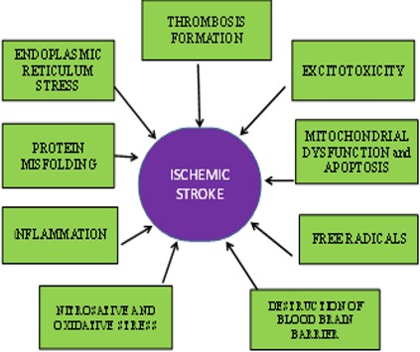Abstract
Stroke is a Central Nervous System (CNS) disorder which occurs due to the obstruction in the brain blood flow. Stroke is mainly of two types, such as ischemic and hemorrhagic stroke. Ischemic stroke (80%) caused due to obstruction of blood flow through Middle Cerebral Artery (MCA) and characterized by a decreased supply of oxygen and glucose to CNS. In comparison, Hemorrhagic stroke (20%) mainly occurs due to the rupturing of blood vessels. Epidemiologically, it is the common reason of death after cancer and affecting millions of global population. There are many risk factors such as hypertension; hypercholesterolemia etc. which can exaggerate the condition of stroke. Various conventional therapies like Antiplatelets, Thrombolytic are available, but, there is a need to obtain a therapeutic approach that can provide prevention as well as a cure for the stroke. So the present review is primarily focused on epigenetic approach for ischemic stroke by Endogenous Transplantation of Neural Stem/Progenitor Cells (NSPCs). This, in turn, will decrease the level of REST protein at the genetic level and enhance the activity of Na+-Ca+ exchanger activity and lowers the excitotoxicity.
Full text article
Authors

This work is licensed under a Creative Commons Attribution-NonCommercial-NoDerivatives 4.0 International License.

